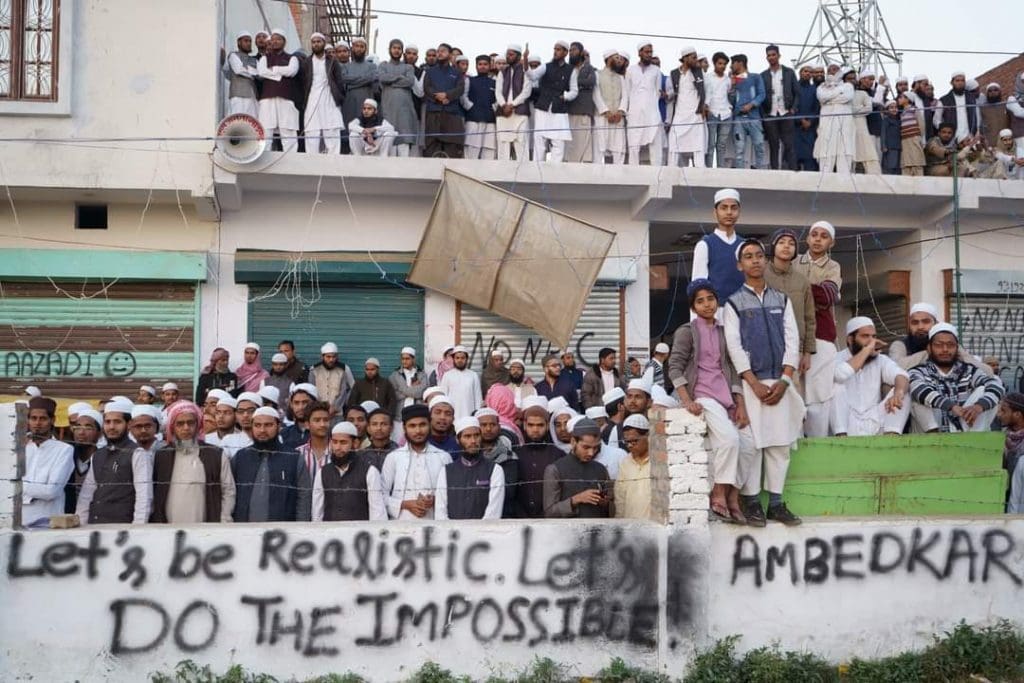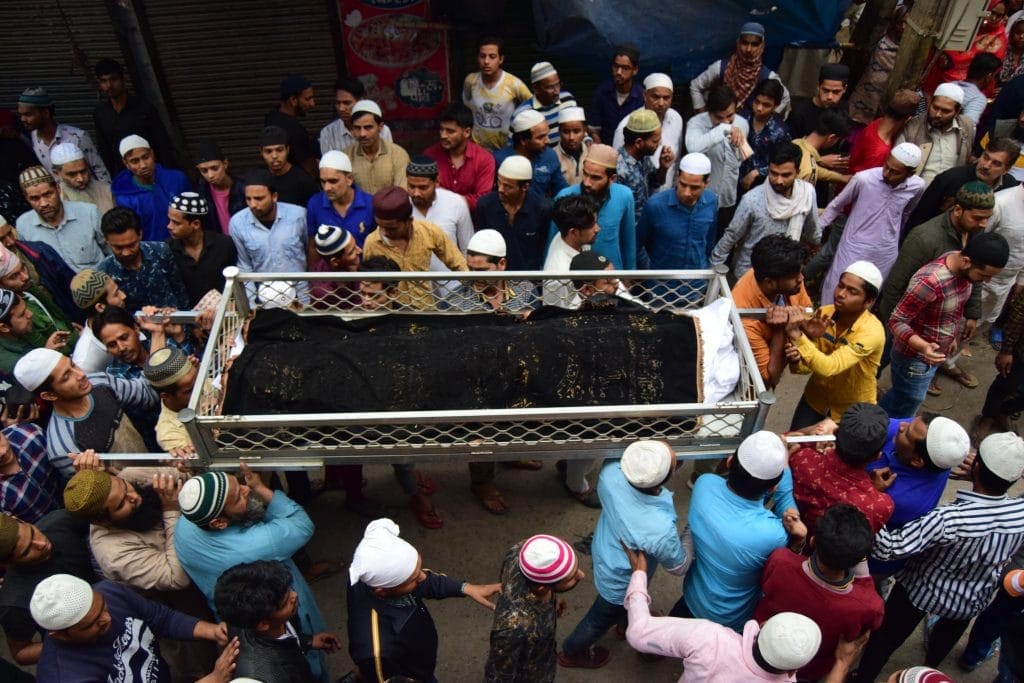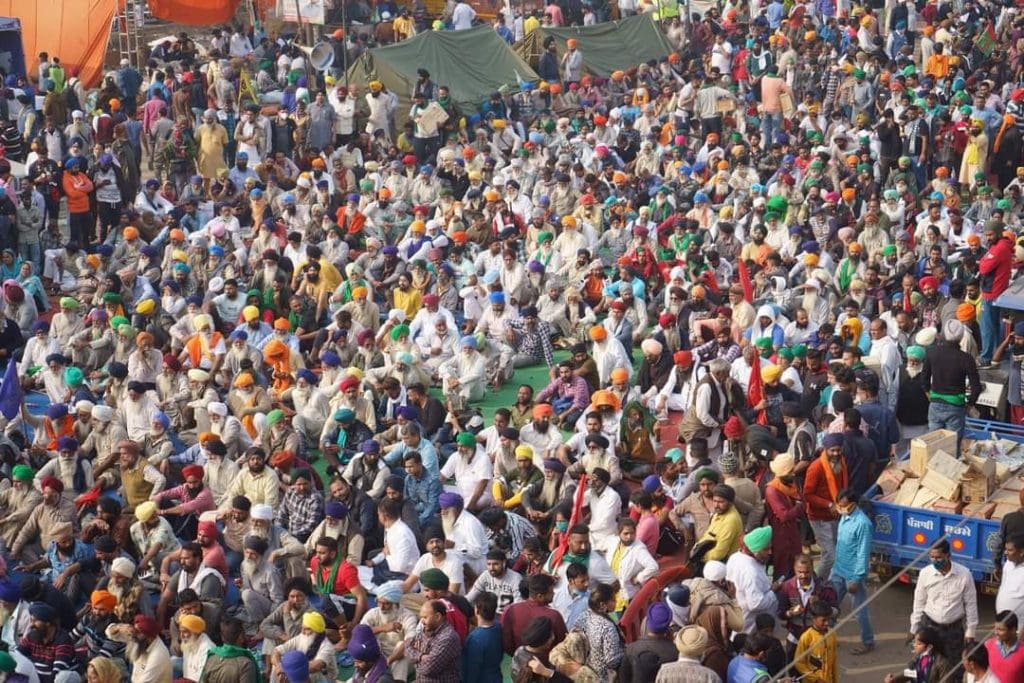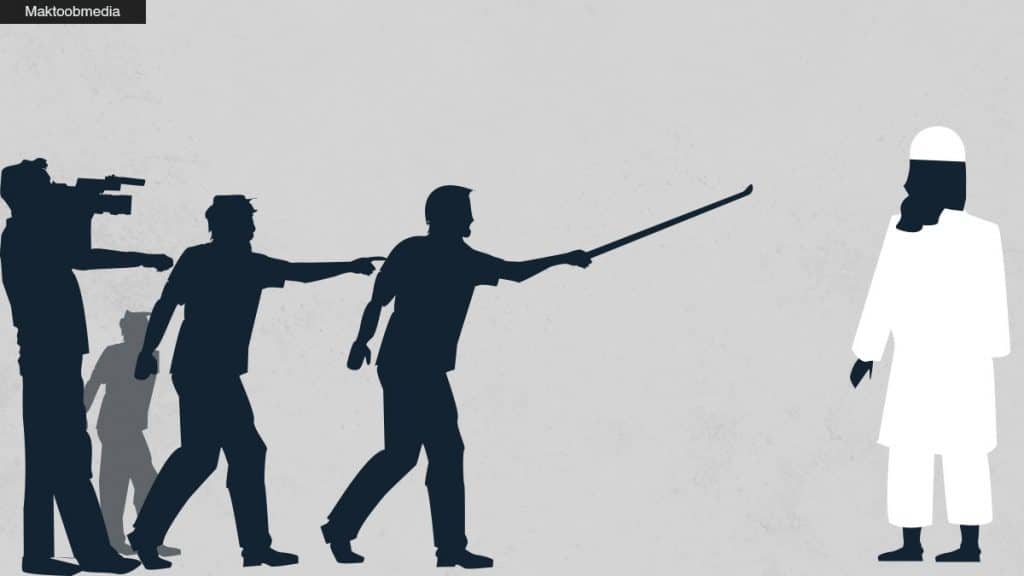
Authorities in India have adopted laws and policies that systematically discriminate against Muslims and stigmatize critics of the government, Human Rights Watch said Friday.
Prejudices embedded in the government of the ruling Hindu nationalist Bharatiya Janata Party (BJP) have infiltrated independent institutions, such as the police and the courts, empowering nationalist groups to threaten, harass, and attack religious minorities with impunity, the rights group said.
February 23, 2021 marks the one-year anniversary of the anti-Muslim pogrom in Delhi that killed 53 people, 40 of them Muslim.
Instead of conducting a credible and impartial investigation, including into allegations that BJP leaders incited violence and police officials were complicit in attacks, the authorities have targeted activists and protest organizers, HRW accused.


The authorities have lately responded to another mass protest, this time by farmers, by vilifying minority Sikh protesters and opening investigations into their alleged affiliation with separatist groups, it said.
“The BJP’s embrace of the Hindu majority at the expense of minorities has seeped into government institutions, undermining equal protection of the law without discrimination,” said Meenakshi Ganguly, South Asia director at Human Rights Watch.
“The government has not only failed to protect Muslims and other minorities from attacks but is providing political patronage and cover for bigotry.”
The February 2020 attacks in Delhi had followed months of peaceful protests by Indians of all faiths against the government’s discriminatory citizenship law and proposed policies. BJP leaders and supporters attempted to discredit protesters, particularly Muslims, by accusing them of conspiring against national interests.
Similarly, after hundreds of thousands of farmers of various faiths began protesting against the government’s new farm laws in November 2020, senior BJP leaders, their supporters on social media, and pro-government media, began blaming the Sikhs, another religious minority. They accuse Sikhs of having a “Khalistani” agenda, a reference to a Sikh separatist insurgency in Punjab in the 1980s and 90s. On February 8, Prime Minister Narendra Modi spoke in parliament, describing people participating in various peaceful protests as “parasites,” and calling international criticism of increasing authoritarianism in India a “foreign destructive ideology.”


Following violent clashes on January 26 between the police and protesting farmers who broke through police barricades to enter Delhi, the authorities filed baseless criminal cases against journalists, ordered the internet to be shut down at multiple sites, and ordered Twitter to block nearly 1,200 accounts, including of journalists and news organizations, some of which Twitter later restored, HRW said.
On February 14, the authorities arrested a climate activist, accusing her of sedition and criminal conspiracy for allegedly editing a document providing information on the protests and how to support them on social media, and issued warrants against two others.
According to the human rights watchdog, the latest arrests come amid increased targeting of activists, academics, and other critics, by the government in recent years.
The authorities have especially harassed and prosecuted those protecting the rights of minorities and vulnerable communities, it said.
BJP leaders and affiliated groups have long portrayed minority communities, especially Muslims, as a threat to national security and to the Hindu way of life. They have raised the bogey of “love jihad,” claiming that Muslim men lure Hindu women into marriages to convert them to Islam, labeled Muslims illegal immigrants or even extremists, and accused them of hurting Hindu sentiment over cow slaughter.
Since Modi’s BJP came to power in 2014, it has taken various legislative and other actions that have legitimized discrimination against religious minorities and enabled violent Hindu nationalism, Human Rights Watch said.


The government passed a citizenship law in December 2019 that discriminates against Muslims, making religion the basis for citizenship for the first time. In August 2019, the government also revoked the constitutional autonomy granted to the only Muslim-majority state, Jammu and Kashmir, and imposed restrictions in violation of people’s basic rights.
Since October 2018, Indian authorities have threatened to deport Rohingya Muslim refugees to Myanmar despite the risks to their lives and security, and have already repatriated over a dozen.
States use laws against cow slaughter to prosecute Muslim cattle traders even as BJP-affiliated groups attack Muslims and Dalits on rumors that they killed or traded cows for beef.
Most recently, three BJP-ruled states have passed an anti-conversion law, which in practice is used against Muslim men who marry Hindu women.
“These actions violate domestic law and India’s obligations under international human rights law that prohibit discrimination based on race, ethnicity, or religion, and require the governments to provide residents with equal protection of the law,” according to the HRW.
The Indian government is also obligated to protect religious and other minority populations, and to fully and fairly prosecute those responsible for discrimination and violence against them, Human Rights Watch said.
“The BJP government’s actions have stoked communal hatred, created deep fissures in society, and led to much fear and mistrust of authorities among minority communities,” Ganguly said.
“India’s standing as a secular democracy is at serious risk unless the government rolls back discriminatory laws and policies and ensures justice for abuses against minorities.”



